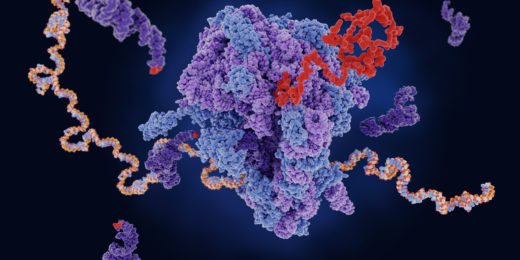Researchers create a blood test to predict a patient's risk for surgical site complications, such as infection.
Month: January 2022
What’s the role of protein machines in diseases of aging?
Researchers find that the ribosome, a protein-making machine, may contribute to diseases of aging, such as Alzheimer's and Parkinson's.
How COVID-19 has hurt health care workers’ mental health
Stanford clinical psychologist discusses how the mental health of health care workers has been impacted by the pandemic.
Staying active is important — especially for older adults
Randall Stafford discusses the importance and benefits of physical activity, particularly for aging adults.
‘Haptic emojis’ can convey emotions through simulated touch
Scientists have devised a wearable sleeve that helps communicate physical touch from afar, a concept dubbed "haptic communication."
Research explores how scammers take advantage of COVID-19
Pandemic con artists have exploited loosened regulations and people's fears to try to scam insurers and patients out of billions of dollars.
When it comes to legal cannabis, Canada’s doing it right
A Stanford Medicine researcher discusses the pitfalls of the cannabis legalization strategy in the US, pointing to Canada as a better model.
Save the health questions for your doctor, not voice assistants
Researchers explore whether voice assistant are able to provide reliable medical information -- so far the answer is no.
Orthopaedic surgery at Stanford helps woman stand upright
Lilly Lee's back was severely bent forward because of a spinal condition. Surgeon Serena Hu straightened it.
Can Prozac fight brain cancer?
The common antidepressant Prozac melts away glioblastoma tumors in laboratory mice, suggesting possible treatment for the deadly cancer.
Kids fare better with early use of diabetes technology
Providing continuous glucose monitors to kids with new type 1 diabetes improves their blood sugar levels a year later, a Stanford study showed












